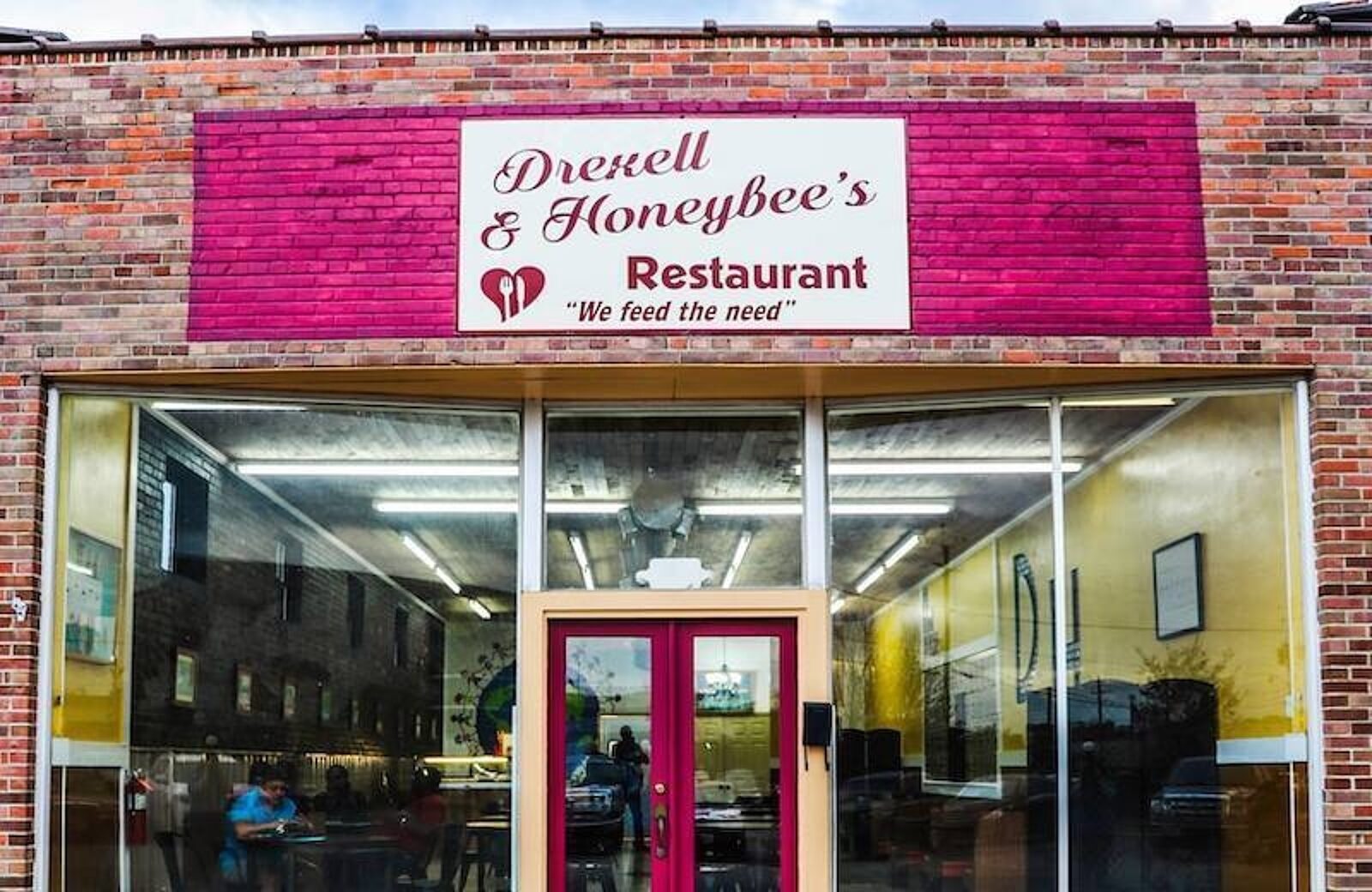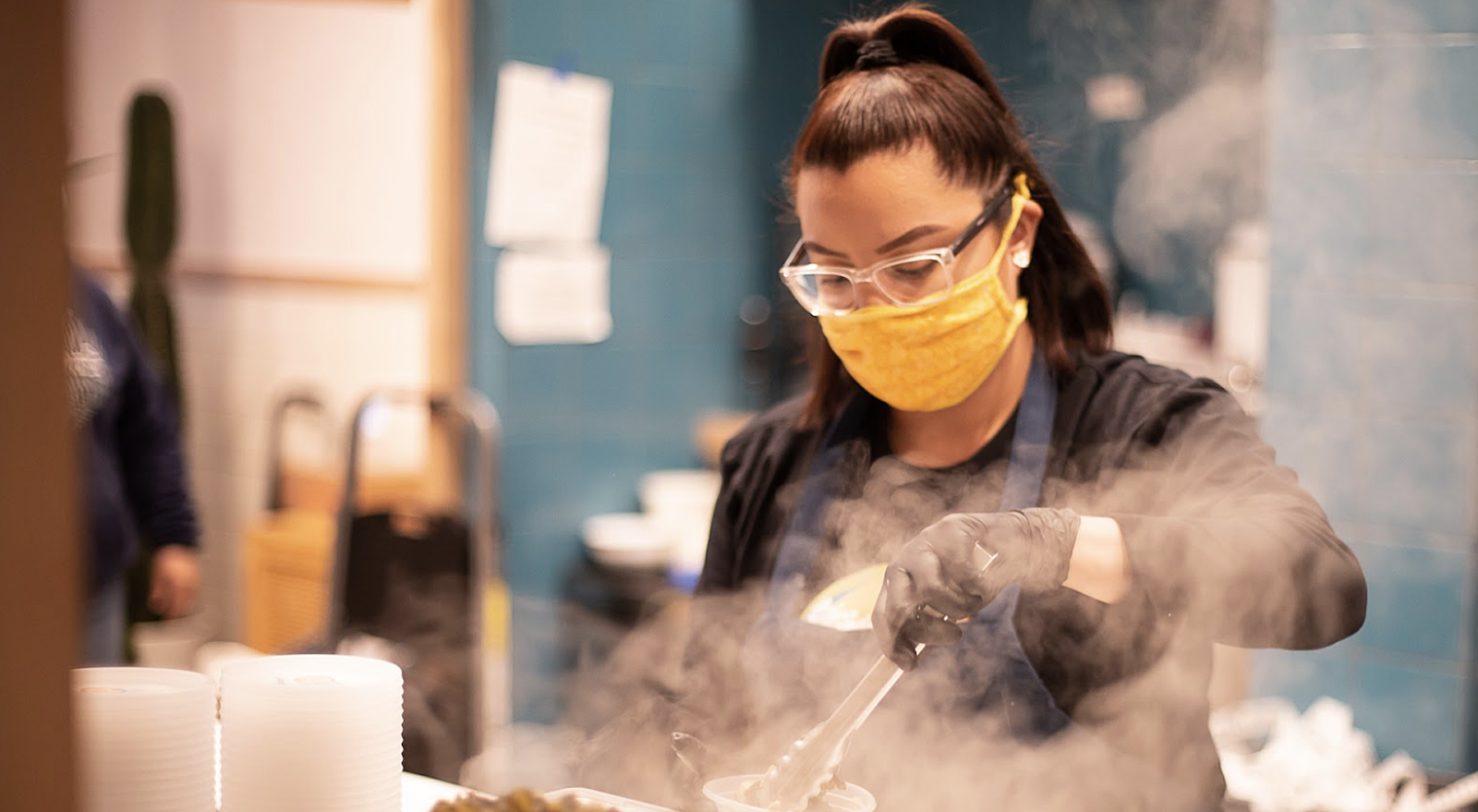
Chefs Work with No Kid Hungry to Keep their Communities Fed
COVID-19 has drastically increased hunger. No Kid Hungry and chefs across the country are here to help.
Jenny Z. DirksenAuthor
The restaurant industry runs on human connection, on generosity, and on a love for great food. And if you’re a part of it, chances are you’re passionate about serving and feeding people.
That’s why so many restaurant professionals are long-time supporters of Share Our Strength, an organization dedicated to ending childhood hunger in America through its No Kid Hungry campaign.
Chefs and restaurateurs have partnered with Share Our Strength for more than thirty years, participating in marquee sip and sample fundraisers, hosting intimate dinners in their restaurants, speaking with lawmakers on Capitol Hill and in statehouses nationwide, and even cycling 300 miles to raise funds with Chefs Cycle. In fact, in any given year, upwards of 1500 culinary professionals engage with the No Kid Hungry campaign through fundraising, advocacy, and awareness building to help ensure more meals for kids at risk of hunger.
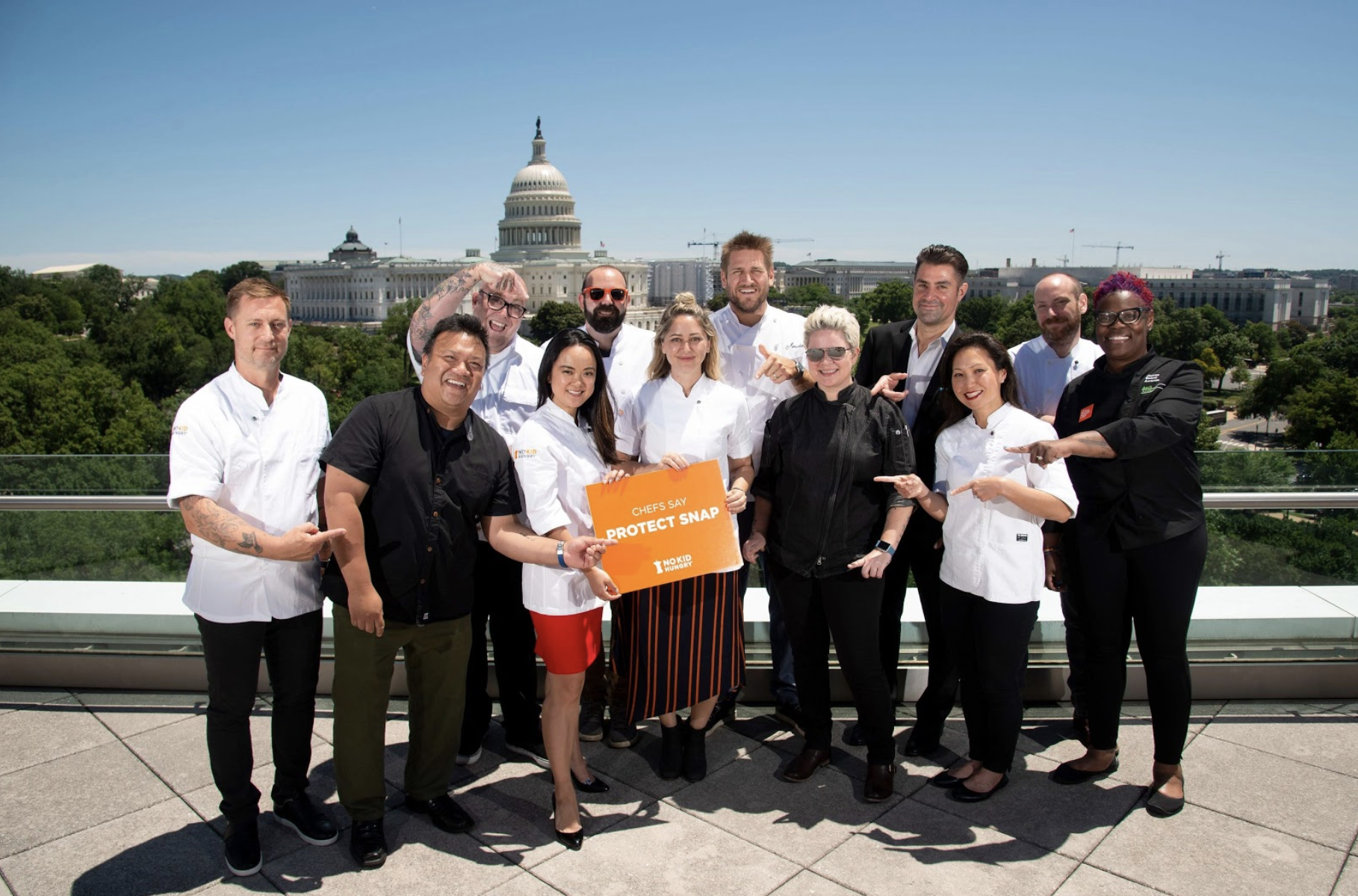 Chef Advocacy Day 2019 (source: No Kid Hungry)
Chef Advocacy Day 2019 (source: No Kid Hungry)
But this year is different. Restaurants are struggling. Sip and sample fundraisers are off the table. School cafeterias, which millions of hungry kids rely on, are largely quiet.
And sadly, 1 in 4 kids in America may face hunger this year because of the pandemic, compared to 1 in 7 the previous year. Many restaurant industry employees are out of work and feeling this struggle acutely, especially in communities of color which experience food insecurity at disproportionately higher rates.
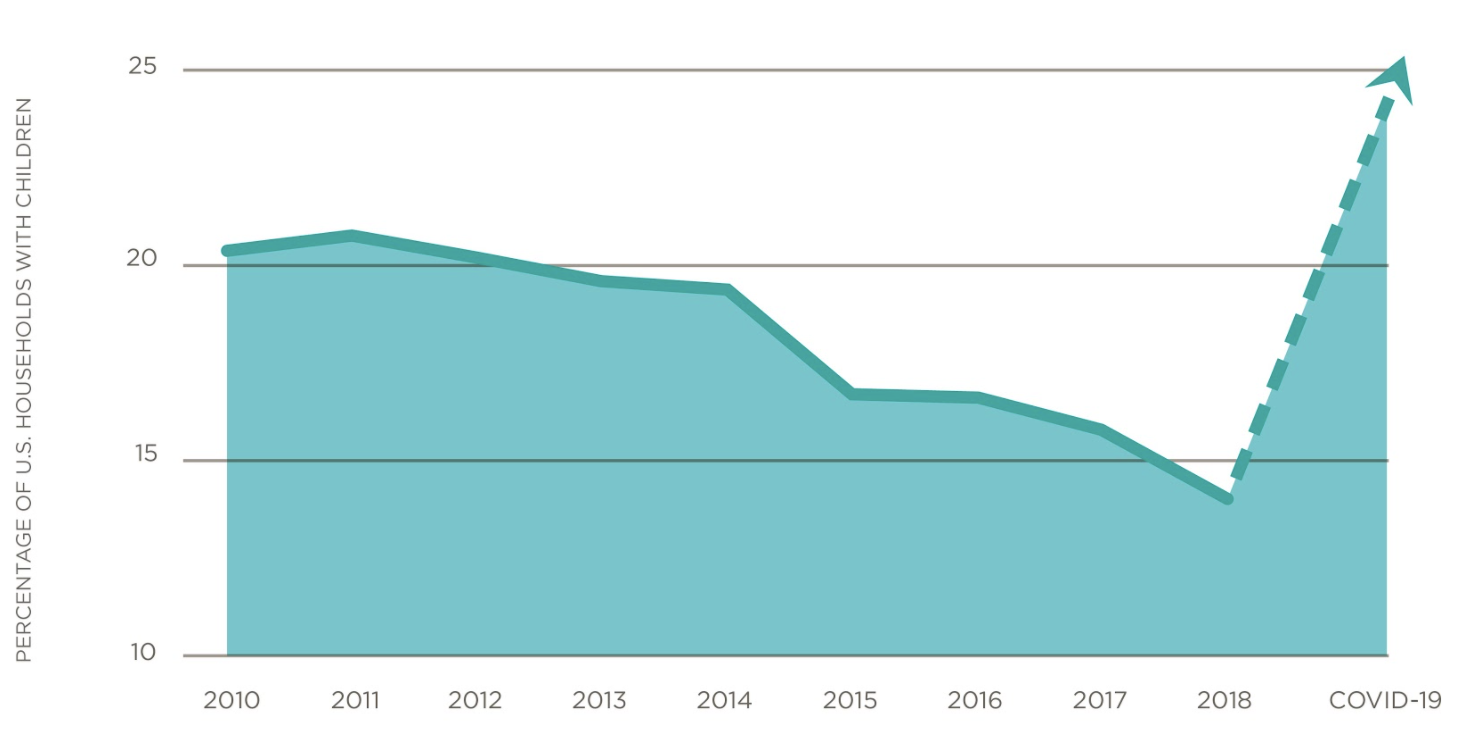 Childhood Hunger in the US since 2010, as of July 2020. (source: No Kid Hungry)
Childhood Hunger in the US since 2010, as of July 2020. (source: No Kid Hungry)
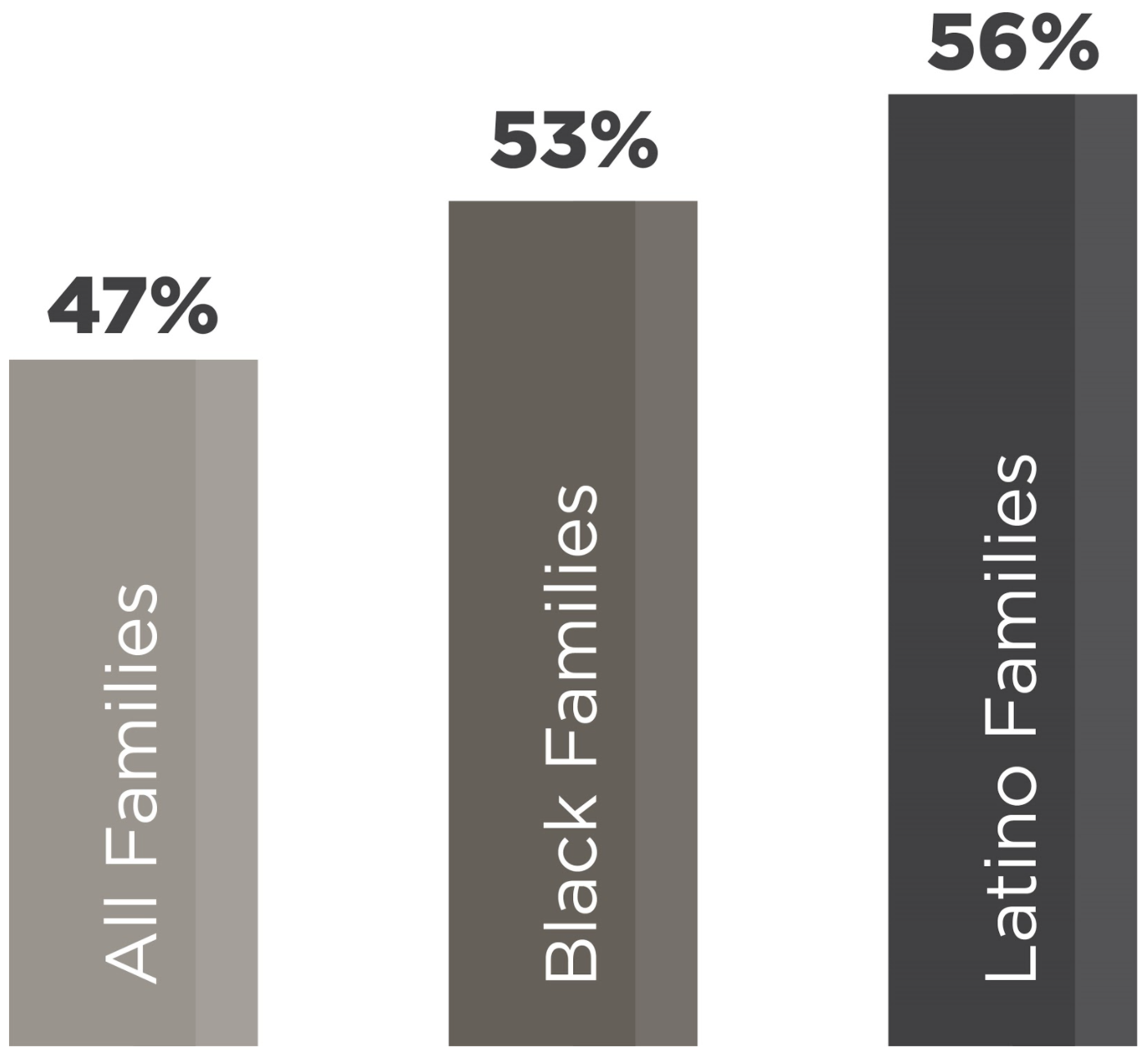 Families Living with Hunger in the US during COVID-19 (source: No Kid Hungry)
Families Living with Hunger in the US during COVID-19 (source: No Kid Hungry)
Though many restaurant professionals may have closed their doors, they continue to show up for their communities. Together with campaigns like No Kid Hungry and committed corporate partners like Toast, the restaurant industry is filling gaps, helping to feed and serve the frontline workers, kids, and families in need.
In March, Toast launched Rally for Restaurants, a grassroots initiative to support restaurants during the COVID-19 crisis. Since then, they’ve written letters to Congress, lobbied to secure funding for the industry, and launched products like delivery and contactless ordering and payments to help the restaurant community adapt to the pandemic.
They continue to do everything they can to help the restaurant industry recover and come back stronger, as restaurateurs and their teams continue to double down and help feed kids and families in need.
Manage Your Restaurant's Finances During COVID-19
In this Excel spreadsheet, you'll find customizable templates, tools, and calculators to help you analyze and optimize your restaurant financials.

We know the need will stretch well beyond the peaks of this crisis. Since the start of the pandemic. No Kid Hungry has granted more than $46 million to nearly 1,500 organizations, with a goal of granting $60 million before the end of 2020. From fueling meal delivery trucks in rural communities and ordering PPE to keeping cafeteria workers safe, to purchasing palettes of food supplies, these grants are making a big difference for hungry children in all fifty states, the District of Columbia, Guam, and Puerto Rico.
And restaurant professionals are making a big difference in their communities, too. With a grant from No Kid Hungry, restaurateur John Rivers of Florida’s 4 Rivers Smokehouse BBQ created a network of chefs to feed children at free meals sites across the state, bringing work to culinary professionals and nutrition to hungry kids.
In Sacramento, California, Patrick Mulvaney of Mulvaney’s B&L created Family Meal Sacramento, a partnership between seven Sacramento restaurants to supply nutritious pre-cooked meals to community members in need.
In Washington DC, Little Sesame co-founder and chef Nick Wiseman quickly converted their fast casual restaurants into community meals sites, launching Meals for the City, an initiative that served 75,000 meals by Labor Day. “Food has the ability to bring us together in times of crisis – we’re committed to ensuring all Washingtonians have access to that basic right,” Wiseman said.
Share Our Strength has co-sponsored the Community Meals Fund Act, which would make these kinds of restaurant initiatives long-term, scalable solutions. The Community Meals Fund Act, introduced by New York Representative Nydia Velazquez in May, would fund public-private partnerships between local restaurants and nonprofit organizations to distribute food to kids and other at-risk populations.
No Kid Hungry has continued to engage the culinary community in federal advocacy. In July, members of No Kid Hungry’s culinary community spoke at seven virtual meetings with Congressional offices, underscoring the importance of SNAP and Pandemic-EBT in future relief bills. Chefs included King Phojanakong and Alex Raij of New York, Ouita Michel and Samantha Fore of Kentucky, Troy MacLarty and Ben Jacobsen of Oregon, Rebecca Masson of Texas, Matthew McClure of Arkansas, Cesar Zapata and Zach Bell of Florida and Tyler Anderson of Connecticut.
 Little Sesame team member Crystal Mendoza, preparing Meals For The City.
Little Sesame team member Crystal Mendoza, preparing Meals For The City.
Photo Credit: Anna Meyer Photo for Little Sesame
Finally, restaurant professionals all over the country have continued to flex their fundraising muscles for No Kid Hungry. Chefs like Douglas Williams of Boston’s MIDA have hosted virtual cooking classes, calling on donors to donate to help end childhood hunger. Multi-units and independent restaurants banded together to support No Kid Hungry’s fall campaign, calling on consumers to dine, shop, and share — with more ways to give coming this holiday season.
Still, this crisis and its effects are far from over.
Restaurants will continue to need support, as children will continue to need food to help them learn, grow, thrive, and simply be kids.
Toast will be there to innovate with restaurant professionals to keep their businesses going and staff working, just as No Kid Hungry will stand with the culinary community through grants to feed hungry kids, and advocacy on behalf of the industry and kids in stimulus talks.
It’s going to take all of us, working together, to get through this crisis. Because without food, and without the passion to serve others, where would we be?
If your restaurant is interested in learning more or working with No Kid Hungry, please email Samantha DeNafo at sdenafo@strength.org.
Is this article helpful?
DISCLAIMER: This information is provided for general informational purposes only, and publication does not constitute an endorsement. Toast does not warrant the accuracy or completeness of any information, text, graphics, links, or other items contained within this content. Toast does not guarantee you will achieve any specific results if you follow any advice herein. It may be advisable for you to consult with a professional such as a lawyer, accountant, or business advisor for advice specific to your situation.
Read More
Subscribe to On the Line
Sign up to get industry intel, advice, tools, and honest takes from real people tackling their restaurants’ greatest challenges.
